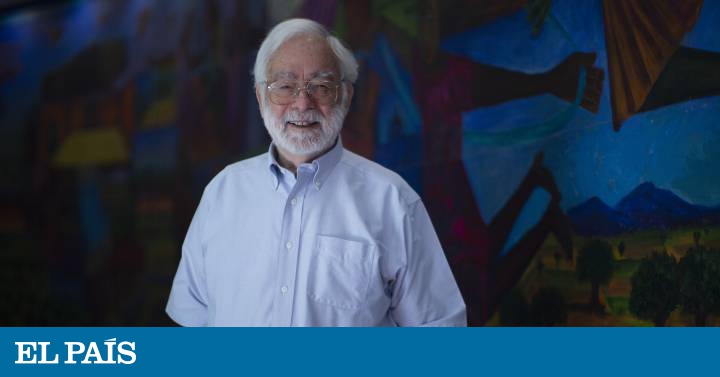Herbert S. Klein (New York, 1936) is the living scholar who has directed the most doctoral thesis in the United States. From the leading universities in his country - Chicago, Columbia or Stanford - this historian and anthropologist has sponsored dozens of students in the fertile American tradition of Latin American studies. The Colegio de México has just awarded him the Alfonso Reyes Prize for his vast research on slavery, finances and colonial demography, as well as the comparative history of the region during the twentieth century. In his books - Slavery in Latin America or the Caribbean or Minimum History of Bolivia, both edited in Spanish by the Colmex - it dismantles common places such as the supposed subaltern role of the Aymara community; and illuminates little known facts such as the collaboration of African elites in the slave trade.
Question. What was the role of the African peoples in the development of slavery?
Reply. Despite widespread ideas that Europeans arrived and robbed the Africans, traffic was controlled from the African towns and kingdoms to the American colonies. Europeans had a very limited idea of the African coast. It was very difficult for them to reach Nigeria, Congo or Angola. In addition, it was a market that was very specialized, expensive and slow. It took three months to complete a 300 slave ship. And African merchants demanded textiles from Asia or special products such as weapons.
Q. Another myth then is that the slave trade was cheap.
R. It was very expensive. The powerful Ashanti people, in northern Ghana, directly called for gold. African actors encouraged competition among Europeans. In fact, during the first period the Portuguese settlers could not access the areas of Benin or Biafra, the most appreciated. Until the boom in Brazil of minerals, including gold, arrived, the Portuguese could not access those areas.
P. The Portuguese were the ones who came closest to controlling the business from the beginning.
A. Yes, in Angola and Mozambique an Afro-Uruguayan merchant class emerged, free mestizos, who managed not to depend so much on merchants. They were able to accumulate slaves and send them abroad. The Portuguese even went to war on African soil to support their slave members against other peoples who supported the English or Dutch. They were the only ones who entered Africa directly.
Q. What differences were there between the Spanish and Portuguese expeditions on the one hand; And the Dutch, English or French?
R. The Spanish and Portuguese Crown controlled the flow until almost the 19th century. While Dutch, English, even French, were the first to mount their private expeditions outside the Crown. Liverpool or Nantes were large ports of blacksmith ships
Q. How was the relationship between indigenous and African slaves?
A. Laws abolishing indigenous slavery were later in Brazil, which caused many rebellions and escaped by a border that was also very open and difficult to control. While the uprooted African slaves were easy to control, but they were expensive. Until 1600, most were indigenous slaves. Once Brazil thoroughly entered the European sugar market, it was able to get the money to buy African slaves. And from here, the Indians practically disappeared. The Portuguese were not as sensitive to the issue of human rights as the Spaniards.
Q. What was the difference?
A. In Portugal there were no deep debates regarding the Indians. In Spain, yes. This has to do with the fact that the Portuguese did not have as much control over Brazil as the Spaniards over their colonies. Nor was there such a strong implantation of the church. In addition, Spain conquered developed civilizations - Inca, Mexico - with established social and economic structures, with farmers producing their own land. In Brazil they were fundamentally hunter-gatherers, nomads, less developed and more difficult to control. Spain sought to absorb that previous structure of nobility and, above all, peasantry that paid taxes. They simply eliminated the local elite to put the viceroy.
Q. What is the legacy in the present of that colonial slave past?
A. In all societies that were slaves, racism still exists. The issue is intensity and how it operates. In Brazil, for example, there are fewer black ghettos than in the United States. It is a more integrated society. It is also changing racial self-identification. Until the 50s, Brazil considered itself a white country. Now the average Brazilian is already accepted as a mestizo. Although there are other significant data. Black upper-middle class families have trouble securing the same class position for their children, something that does not happen with rich white families.
Q. Is it still far to break that identification of the white with the positive, the rich?
A. In Bolivia, for example, there is also a high level of self-identification. A third of the Indians do not speak an indigenous language, speak Spanish, and yet identify themselves as indigenous. This is due to an extraordinary mobilization of the Aymara popular classes, which, while removing the element of the language, do not want to identify themselves as white. They have been the catalyst, despite the fact that in the 50's everyone thought Quechua were the predominant community in Bolivia and that Aymara were very passive.
P. You speak in your book that Bolivia is “the most indigenous of our republics”
A. In percentage of population Guatemala is more indigenous, but Bolivia is the most self-identified. This is due to that pride of the communities and, above all, to education. Since the 40's there is a rural education network for farmers. Before even the arrival of Evo Morales.
Q. What do you think will happen in the May presidential elections?
A. The MAS will win again. There is no other country in Latin America where the indigenous community has expressed itself so powerfully.

